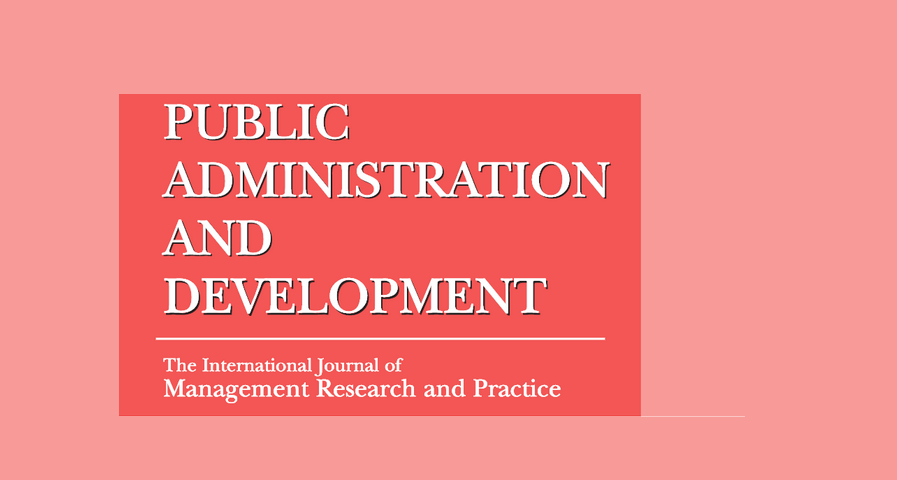Thank you for your message. The IPPA team will get back to you shortly. You first need to login here.



Public Administration and Development Special Issue: September 14-15, 2023 -Online Special Issue Workshop
Conveners: Dr. Yifei Yan*, Dr. Kidjie I. Saguin**, Dr. M. Kerem Coban*** Affiliation: *Department of Politics and International Relations, University of Southampton; **Faculty of Social and Behavioural Sciences, University of Amsterdam; *** Department of Political Science and Public Administration, Kadir Has University & School of Finance and Management, SOAS, University of London E-mail: *Y.Yan@soton.ac.uk; **k.i.saguin@uva.nl; ***m.keremcoban@u.nus.edu Policy capacity emerged as a useful conceptual lens in understanding the effectiveness of policy design and delivery. It has been applied to examine various policy sectors (e.g., foreign policy, education and healthcare policy, bank and financial regulation, and climate change policy) and to elaborate on different policy functions such as mobilisation for instrument choices or policy integration and coordination. Scholars examined policy capacity across various policy sectors and/or policy problems in various developing countries (e.g., India, China, Philippines, Turkey, Brazil). These studies have proved the applicability of the concept in policy environments with sub-optimal conditions for effective policymaking, such as intelligence deficits and weak or volatile institutions. Still, most of the studies concentrate on the Global North. This Special Issue has two main objectives: to expand the geographical reach and applicability of policy capacity, and to advance the theorization of policy capacity, which thus warrants a systematic and comparative analysis of the drivers, mechanisms, and political administrative relations in the Global South.
Given these concerns, objectives, and the within the context of the Global South, this Special Issue problematizes:
a) the determinants of policy capacity and the drivers and mechanisms of higher (or lower) policy capacity;
b) whether policy capacity is a dependent variable rather than an independent variable;
c) measuring policy capacity to foster cross-country, cross-sectoral comparisons;
d) conceiving, treating, and theorizing temporality in policy capacity;
e) the “order” among the three components and/or levels of policy capacity;
f) identifying the drivers and mechanisms of policy capacity development and measuring its success?
g) whether and how populist, authoritarian governments intervene in policy capacity in developing countries; and whether and how they may cause decay in policy capacity.
Building on a successful upcoming “kick-off” panel at ICPP6 in Toronto, we invite public policy scholars to problematize these pressing concerns with a particular Global South outlook. Studies that apply qualitative, quantitative or mixed methods, new empirical data and/or conceptual/theoretical developments are welcome.
Please send your abstract (max. 500 words) to “polcapacitygs@gmail.com”. In the title of your email, please indicate this as “Paper Proposal PAD Workshop”. Deadline: 17 July 2023 (we will notify the paper givers by 21 July 2023)
Special Issue Timeline:
- June 2023: Call for papers published
- September 2023: Developmental workshop held
- Early January 2024: Full papers submitted to Public Administration and Development
- Late June 2024: Amendments and resubmissions completed
- August 2024: Online publication of the Special Issue


Thank you for your message. The IPPA team will get back to you shortly. You first need to login here.